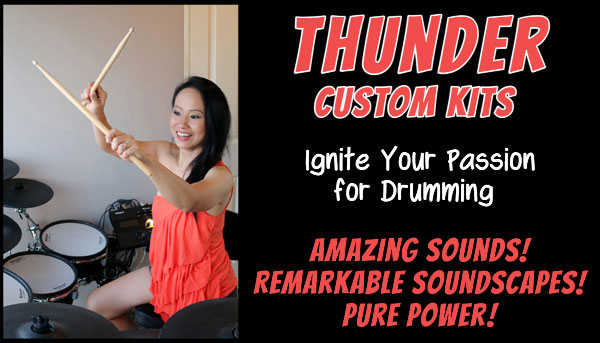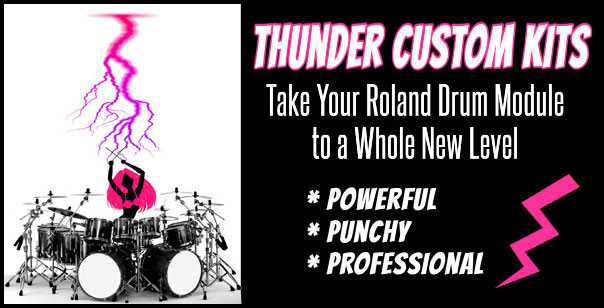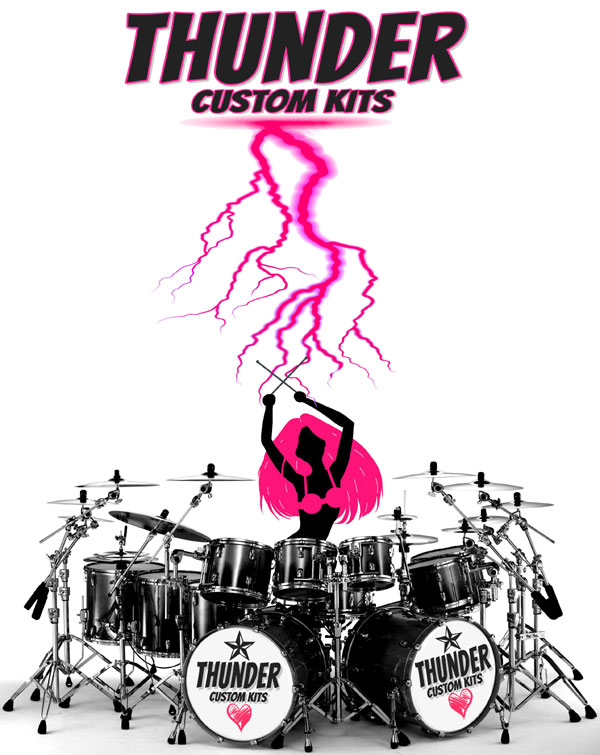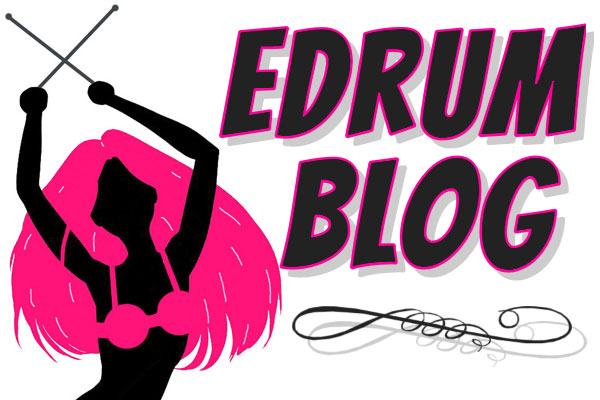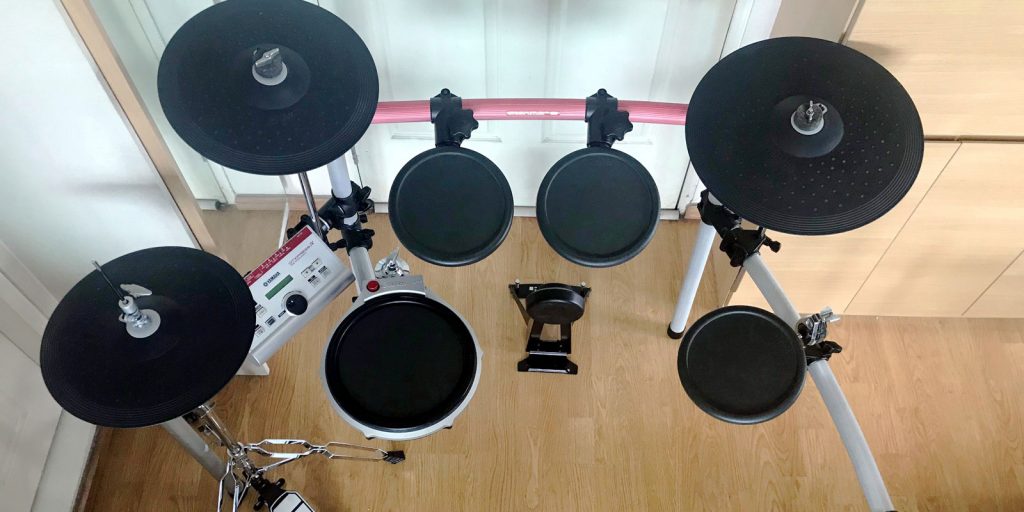
Should you buy Roland, Yamaha, Alesis or other electronic drums? When it comes to the best electronic drum set, there are many things that must be carefully considered. Everyone has their opinion on this subject, but are these opinions based on facts or simply based on personal association?
“I have this kit, so it is the best!” LOL.
Let’s try not to mirror our own self-worth in our edrums and simply talk truth here…
This conversation will diverge from the normal argument of best brand that appears on every drum forum and drum group worldwide. I will cover some things that are not always part of the conversation. This will be a multi-part post, but in this part, I will focus on the BIG 3 players in the industry, while also providing a background on some other players to be discussed in greater detail in future posts. Additionally, this is an OPINION PIECE, so feel free to disagree without your entire delicate little world crumbling! LOL.
Which Are The Best Edrums?
There are 3 major players in the edrum industry, a few minor players and a multitude of fringe characters:
I define a major player as a company with proprietary products and in-house design/manufacturing, a record of commercial success in the market, an ongoing commitment to innovation and the ability to create a quality product over a long timeline. So, the major edrum players are Roland, Yamaha and most recently, Alesis. Call them the BIG 3. These companies are the best known and have developed unique products lines that each appeal to different types of consumers.
Secondary players might also have many of these characteristics, but might focus more on build quality rather than innovation and maybe have not achieved much from a commercial POV (yet). Maybe they outsource much of their product design or manufacturing. Most secondary players are younger companies, as well. Secondary players include ATV, EFNote, Carlsbro, Medeli, Gewa, Pearl and a few others, depending on where you live…
Fringe players generally do not focus on edrums and may not even be musical instrument companies, per se. OR, they may be specialists and only make a limited line of products for highly specific uses. Their products may or may not be good, but they just have not enjoyed a leadership role in the industry (yet). Most fringe players outsource much of their product design and manufacturing. Fringe players include Nux, XM, HXM, Goedrum, the nameless armies of Chinese generic brands, many companies that sell re-branded OEM products (mostly from Medeli) and some niche companies that manufacture specific products, like Drumtec, Pintech, Hawk, Jobeky, Millennium, Field, 2Box and many, many more!
Companies are not locked into being in any category. Some companies are moving up (rapidly), while others are moving down or even disappearing all together! Also, please excuse any omissions when it comes to companies. Not all brands are available everywhere in the world…
In the sections to follow, I will provide my thoughts on how these companies rate, from personal and professional experience running a dedicated edrum shop for the past almost 7 years and playing almost everything under the sun at some point in time… Secondary and fringe companies will be discussed in greater detail in the second part of my post, coming soon!
Roland Electronic Drums
Roland has long been the market leader in electronic drums. They are known for making great quality, durable and high-performing edrums for decades. Roland has really done so much to propagate the popularity of edrums.
Roland’s current edrum offerings rank best in class in several price points and are always solid contenders when making kit recommendations. I focus on buying and selling Roland edrums in my own business for good reasons: They work and they hold their value. Roland are not the cheapest, but they are better in quality than virtually all other lower cost brands on several measurable levels.
Roland kits never come complete. You always need to buy extras just to sit down and play them. Usually, you need to buy a throne, sticks, a kick pedal and possibly, a snare and hi-hat stand. This is unappealing for many novice drummers and those on a budget, especially given Roland’s notoriously high cost!
I have long been a fan of Roland, but must admit that I do not like the direction the company has taken in several ways. I feel that the quality of their products has fallen in several notable areas (like the disastrous and utterly embarrassing Malaysia-Made cymbal debacle).
I also question their ability to continue to innovate, while holding on to their “Roland Way” of doing things that worked 20 years ago, but might not suit today’s marketplace so well. Roland continues to utilize architecture that it innovated decades ago, while many other companies have advanced past them, such as the sound quality of internal modules sounds using samples instead of modeling. The immense popularity of VST products just proves that Roland is NOT always pleasing many people by providing more editing features, instead of just making their drums sound awesome right out of the box… That said, the editing capabilities of Roland modules is superb and I utilize the editing parameters extensively.
Roland is not cheap, but I do not feel that they are necessarily over-priced. A good musical instrument is always an investment, and Roland ekits are incredibly satisfying. They play wonderfully and expressively. I also can attest to their high resale value, when cared for well. Personally, I love my Roland set, but I am not bonded by blood to it. In fact, I am considering shedding the brand for my next kit; simply because I feel that I may be better served elsewhere if the competition continues to innovate, while Roland stagnates.
I do feel that although Roland is largely criticized for their high price, their value now is better than ever. A Roland flagship kit has always been a huge investment, but today’s kits are exponentially better than those of the past… If Roland can re-establish its proven durability and QC standards, then it will likely reign on top of the pack for the conceivable future.
I feel very well qualified to speak about Roland products, having played, bought and sold countless kits in recent years. Better still, I DO NOT sell Roland gear as a distributor, but instead as a second hand product, so I am free to voice my opinion openly and objectively, without incurring punitive action from the company! If I were Roland, I would listen to the objective opinions of more people like me. I am on their side, but not in a butt-kissing, “you can do no wrong” kind of way. LOL! I’m just saying…
Yamaha Electronic Drums
Yamaha is always the number 2 edrum maker to me. I like their products and find them solid and almost insanely durable. I buy and sell tons of them! I have never found a Yamaha edrum product that failed across an entire line or generation. No bad screens, no broken cymbals (are you listening Roland?) Yamaha works. It lasts. It is also very expensive. Just as much so as Roland. Resale on lower end Yamaha kits is disappointing, but the TCS silicone pads are hot items, now more than ever when they are in smaller supply on the open market.
Yamaha tends to come with everything you need to actually play, especially on beginner kits.
Kick pedal? Check! Throne? Check! Hi-Hat Stand? Checkmate!!!
This is added value and much appreciated by new drummers. Yamaha also gets a big sales boost in countries where it runs music schools, like here in Thailand!
In my extensive experience, Yamaha falls a bit short on playing experience. The drums are super well made and each component is fine unto itself. Somehow, the entire Yamaha kit usually feels a bit disjointed. The playing experience feels like an assortment of different sounds, sometimes angrily contrasting against each other, rather than a cohesive kit where the instruments blend nicely, like an acoustic kit would. Maybe, it’s just me and my perception, but based on countless conversations with other drummers, I don’t think so…
Yamaha gives up something intangible in its edrums that is hard to describe, but impossible NOT to notice…
That being said, I wholeheartedly recommend Yamaha kits are great products and do see that their most recent kits are making strides forward at reasonable prices. I also think that if Yamaha does invest the R&D money in a new true flagship kit, it may be the perfect solution for many drummers! I would certainly be interested. Yamaha kits do many things other kits can not do at all (or do well). Make sure to check out their feature set if you are looking for something that Roland can not do. You might be pleasantly surprised! If you love your Yamaha kit, that’s cool. No arguments from me. There is lots to like!
Alesis Electronic Drums
Alesis… sigh. Here is where a girl can get into trouble! LOL… I have mixed feelings when it comes to Alesis. On one hand, the company does make some stellar music gear outside of the drum sphere. However, it has made itself all-too-comfortable in the ultra-low-budget edrum space (and understandably, since this is where most of the ekits that are actually sold fall price wise!).
Alesis is in for an uphill battle trying to break itself out of the price-point mold! People associate it with cheap price first and acceptable quality second.
I tend to look at the bigger picture when it comes to the company. Yes, Alesis makes (and sells) tons (TONS!) and different model ultra-cheap kits. But, this is because people want to buy them. Many people do not know if they will like drumming and don’t want to break the bank trying it out. Maybe, they can not afford anything expensive due to life circumstances. Alesis steps up and makes edrums affordable. Can’t fault them for that wonderful kindness! They offer some great features that other companies can not match for anywhere near the same price. But, this “generosity” often comes at the cost of quality. Alesis also falls flat comparatively when it comes to resale value. The longer you hold them, the less they are worth.
When Alesis launched their first flagship model, the Strike Pro, the product was plagued (like BUBONIC PLAGUE) with quality control issues. Pads were literally falling apart, while others simply did not work well, even if their form-factor held strong. The modules had many issues. The launch was a disaster in some ways, but a huge win in others…
Alesis DID step up and DID cover replacements on their kits. They did this quickly and without question. I can speak personally that the service I have received from Yamaha and Roland has been abysmal. Just trying to contact these companies is nearly impossible and once you finally establish contact, you are most surely going to be disappointed with the customer service! Alesis is the opposite. Call them…
“Hello Alesis! How can I help you?” THIS IS SERVICE!!!
Some users received multiple pad and even module replacements over several years time. Virtually no one complained about waiting long for good service. This made many users feel that the downsides of Alesis quality were worth the risk to get TONS of features at a LOW cost (less than a third of the cost of the competition in some cases!) Then, Alesis went a step further and sought to fix their issues quickly in newer versions of the Strike Pro Special Edition. Basically, Alesis took their money and reinvested it into R&D to fix poor QC that was rushed the first time around. I also believe they learned a major lesson about getting it right the first time… Where do they go from here is the question…
Comparing Edrums: Roland, Yamaha, Alesis or Other?
Stay tuned for part 2 of this post soon, where I will provide some additional insights on the BIG 3 companies detailed above, as well as the other players in the edrum industry!
I love posts like this one that encourage open dialog and opinion without confrontation or ego. I hope you enjoy them too. Posts like this are the driving force in the continuing development of the edrum industry, even if the big companies pretend not to listen. They are listening more and more… Slowly, but surely.

